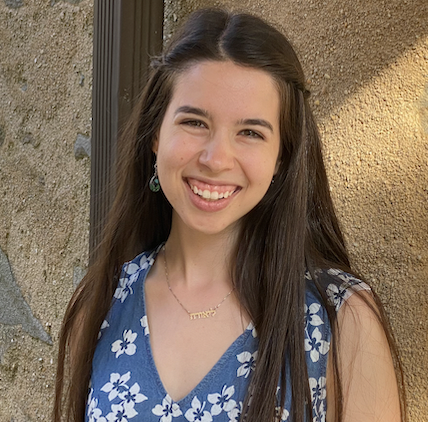Positive Psychology
Exploring Differences in Life Satisfaction among English and Spanish-speaking Participants in MBSR and Psychoeducational Support Interventions
(PS8-D83) Exploring Differences in Life Satisfaction Among English and Spanish-speaking Participants in MBSR and Psychoeducational Support Interventions
- MM
Melissa Miranda, B.A.
Project Coordinator
Loma Linda University
EL Monte, California 
Laurel R. Benjamin, B.S.
Graduate Student
University of California San Diego
Claremont, California- CN
Cameron Neece, Ph.D.
Professor
Loma Linda University
Loma Linda, California - LM
Laura Lee McIntyre, Ph.D.
Castle-McIntosh-Knight Professor
University of Oregon
Eugene, Oregon
Author(s)
Co-Author(s)
Historically, intervention research on parents of children with developmental delays (DD) has been deficits-focused, aimed at reducing parental distress and child externalizing behavior problems. Few studies have specifically examined positive outcomes like life satisfaction. The current study takes a positive psychology approach to examine the effects of both Mindfulness-Based Stress Reduction (MBSR) and a Psychoeducation and Support group on life satisfaction among English-speaking (n = 69, Mage = 37.58, 97.1% female, 26.1% Latino) and Spanish-speaking (n = 74, Mage = 39.07, 97.3% female, 100% Latino) primary caregivers of children with DD.
Participants were randomly assigned to a 16-week behavioral parent training (BPT) intervention enhanced with MBSR (BPT-M; n = 52) or Psychoeducation and Support (BPT-E; n = 51) delivered in participants reported primary language. Participants completed the Satisfaction with Life Scale (Diener et al., 1985) at pre- and post-intervention.
Bivariate correlations were run between life satisfaction and potential covariates including number of intervention sessions attended, intervention engagement, income, and education level. None of these potential covariates were related to the predictor and outcome variables so they were excluded from the final model. There were no baseline group differences found between English and Spanish speakers' satisfaction with life (t = 1.49, p </em>= 0.14). Life satisfaction improved from pre-intervention to post-intervention for participants across both treatment groups (b = .43, p < .001). Hierarchical linear regression analyses found a marginally significant interaction between intervention group and language (b = .58, p = .096), such that in the BPT-E group, Spanish-speaking participants’ life satisfaction increased slightly more than English-speaking participants’ life satisfaction (b = -.44, p </em>= .084). Primary language was not a significant predictor of change in life satisfaction among participants in the BPT-M group (b = .19, p = .417).
Our findings highlight the efficacy of BPT-M and BPT-E in improving life satisfaction across diverse families of children with DD. Our findings also point to the specific benefits of psychoeducation among Spanish speaking families. Consistent with existing literature, psychoeducation may be particularly beneficial to Spanish-speaking participants whose access to such information is generally limited by language and resource barriers. Future intervention studies among Spanish-speaking families may benefit from adding a psychoeducation component to enhance treatment efficacy, address resource disparities, and improve mental health literacy in this population. Moreover, although MBSR is rooted in Western Buddhist tradition, our results underscore the potential benefit for families from diverse linguistic and ethnic backgrounds, as evidenced by comparable improvements in life satisfaction between English and Spanish speakers in BPT-M. Future research will continue to assess post-intervention changes in life satisfaction at follow-up assessments, as well as other positive intervention outcomes.

